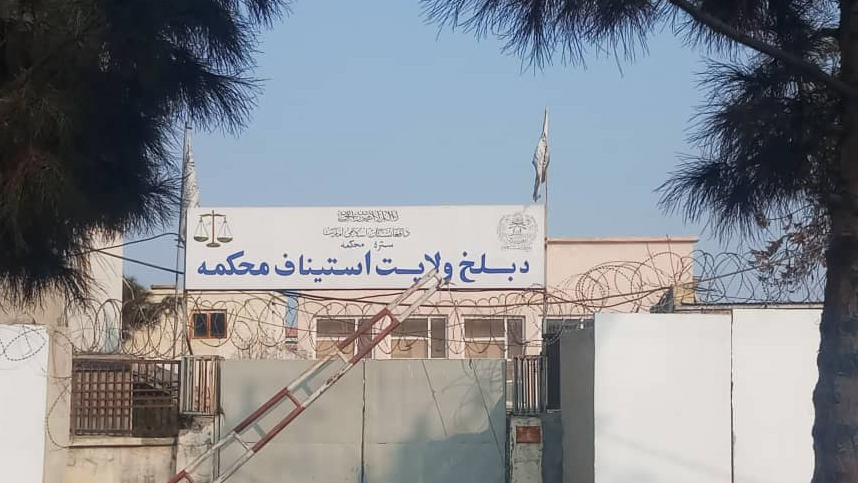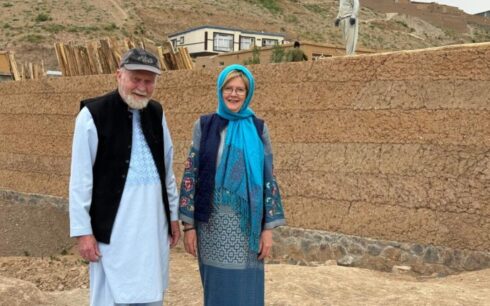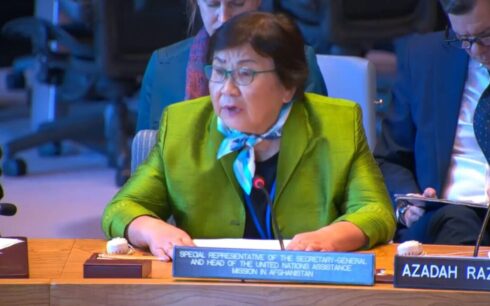The United Nations Assistance Mission in Afghanistan (UNAMA) unveiled a new report on Wednesday, documenting over 1,600 instances of human rights violations committed by the Taliban during the arrest and “subsequent detention” of individuals.
The report covers the period from January 1, 2022, to July 31, 2023, and spans 29 of Afghanistan’s 34 provinces. Nearly half of these violations involve acts of torture and other forms of cruel, inhuman, or degrading treatment.
These violations were primarily observed during the arrest and custody processes within facilities under the de facto Ministry of Interior (MOI) and the de facto General Directorate of Intelligence (GDI). Isolated incidents were reported in prisons managed by the de facto Office of Prison Administration (OPA).
According to the UNAMA report, detainees endured severe pain and suffering, including physical beatings, electric shocks, asphyxiation, stress positions, forced ingestion of water, blindfolding, and threats in attempts to extract confessions or information. These actions, coupled with the denial of access to legal representation, constitute violations of due process guarantees, as per the report.
Despite directives issued by the Taliban to better protect detainees’ human rights and regulate security personnel’s conduct, the report indicates that these directives, including a code of conduct issued in January 2022 and similar ad hoc instructions, have not been adequately implemented at the operational level.
The report underscores the urgent need for the professionalization of de facto security and prison authorities, particularly in areas related to investigative capacities.
Volker Türk, the UN High Commissioner for Human Rights, condemned the prevalence of torture and called on all concerned de facto authorities to take concrete measures to halt these abuses and hold perpetrators accountable.
“The personal accounts of beatings, electric shocks, water torture, and numerous other forms of cruel and degrading treatment, along with threats made against individuals and their families, are harrowing. Torture is forbidden in all circumstances,” Türk said.
“This report suggests that torture is also used as a tool – in lieu of effective investigations. I urge all concerned de facto authorities to put in place concrete measures to halt these abuses and hold perpetrators accountable,” he added.
UNAMA’s report also emphasizes the need for the Taliban to establish a more robust legal aid framework and address the blockages in the criminal justice process caused by high volumes of arbitrary arrests without effective judicial oversight. Arbitrary and prolonged detention, pending investigations, increases the risk of abuse.
The report acknowledges efforts to enhance oversight of detention facilities, including the work of the de facto MOI and de facto GDI Human Rights Directorates, de facto OPA’s monitoring committee, the de facto Supreme Court’s committees, and the establishment of a new High Directorate of Supervision and Prosecution of Decrees and Edicts, tasked with monitoring detention facilities and investigating abuse allegations.
Roza Otunbayeva, the Secretary-General’s Special Representative for Afghanistan and Head of UNAMA, stressed the need for urgent and accelerated action to address these practices, highlighting the importance of continued engagement with de facto authorities.
She expressed hope that the report and its recommendations would be treated as a top priority, reiterating UNAMA’s commitment to engaging with impartiality and good faith for the benefit of the people of Afghanistan.
“Although there have been some encouraging signs in terms of leadership directives as well as an openness among many de facto officials to engage constructively with UNAMA, and allow visits to prisons, these documented cases highlight the need for urgent, accelerated action by all,” said Otunbayeva.
“There is a pressing need to consider more engagement with the de facto authorities to end these practices, and I hope the report and its recommendations are seized upon as a matter of priority. We remain committed to the people of Afghanistan and our efforts to maintain constructive engagement, with impartiality and in good faith,” she added.
UNAMA affirmed that Afghanistan remains bound by numerous international instruments on human rights and fundamental freedoms as a State Party and emphasized its mandate to promote and support the implementation of these obligations, as designated by the United Nations Security Council.





